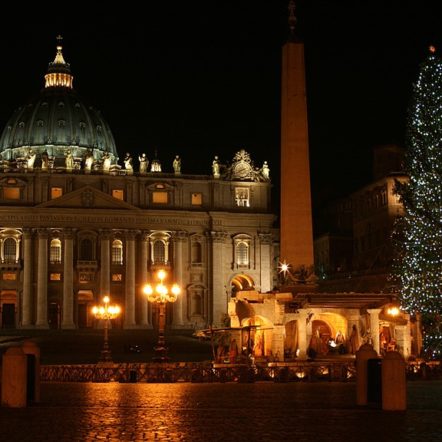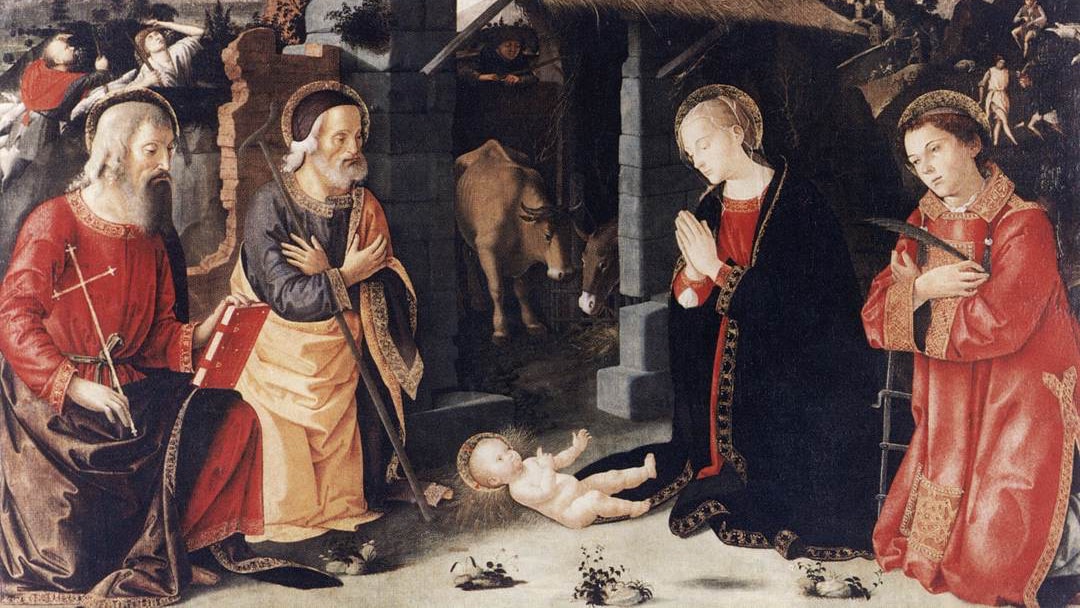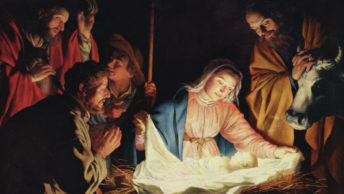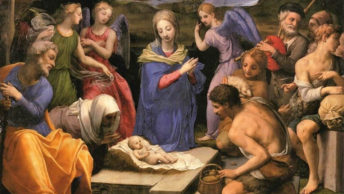Christmas is a special time for our Christian faith. It prepares and helps us celebrate the great entrance of the Son of God into our midst.
Christmas is a time of great hope, too! Amid the problems and difficulties we are assailed with, it presents for us a golden opportunity for reflection so as to find the meaning of its real meaning and how it is intimately related to our lives both as humans and, much more, as Christian believers. Our three most recent Popes share with us some very relevant and fruitful thoughts about the Christmas solemnity.
What meaning does Christmas have for the current Pope, Francis? Here is his response in an interview he gave at the Christmas season of 2013: “It is the encounter with Jesus. God has always sought out his people, led them, looked after them and promised to be always close to them. The Book of Deuteronomy says that God walks with us; he takes us by the hand like a father does with his child. This is a beautiful thing. Christmas is God’s meeting with his people. It is also a consolation, a mystery of consolation. Many times after the midnight mass I have spent an hour or so alone in the chapel before celebrating the dawn mass. I experienced a profound feeling of consolation and peace. I remember one night of prayer after a mass in the Astalli residence for refugees in Rome, it was Christmas 1974 I think. For me Christmas has always been about this; contemplating the visit of God to his people.”
And what about the meaning of Christmas for people of today? What meaning does it have for them? Thus responds Pope Francis within the same interview: “It speaks of tenderness and hope. When God meets us he tells us two things. The first thing he says is: have hope. God always opens doors, he never closes them. He is the father who opens doors for us. The second thing he says is: don’t be afraid of tenderness. When Christians forget about hope and tenderness they become a cold Church, that loses its sense of direction and is held back by ideologies and worldly attitudes, whereas God’s simplicity tells you: go forward, I am a Father who caresses you. I become fearful when Christians lose hope and the ability to embrace and extend a loving caress to others. Maybe this is why, looking towards the future, I often speak about children and the elderly, about the most defenseless that is. Throughout my life as a priest, going to the parish, I have always sought to transmit this tenderness, particularly to children and the elderly. It does me good and it makes me think of the tenderness God has towards us.”
In his reflection of the true significance of Christmas Pope Francis duly warns us so that we do not end up caught into the superficiality these celebrations can allure us with. As a loving father, the Argentinian Pope encourages us to add joy to Christmas. In his speech with the Holy See personnel in 2014 he said: “Ensure that Holy Christmas is never a celebration of commercial consumerism, of appearances or of useless gifts, or of excessive waste, but that it is a celebration of joyfully welcoming the Lord into the crib and into the heart.”
As a great devotee of Saint Joseph, Pope Francis contemplates the figure of the Guardian of the Redeemer in Jesus’ infancy narratives and, thanks to him, he reflects about the homeless. In his Greeting in the USA in 2015 the Holy Father said: “I can imagine Joseph, with his wife about to have a child, with no shelter, no home, no place to stay. The Son of God came into this world as a homeless person. The Son of God knew what it was to start life without a roof over his head. We can imagine what Joseph must have been thinking. How is it that the Son of God has no home? Why are we homeless, why don’t we have housing? These are questions which many of you may ask, and do ask, every day. Like Saint Joseph, you may ask: Why are we homeless, without a place to live? And those of us who do have a home, a roof over our heads, would also do well to ask: Why do these, our brothers and sisters, have no place to live? Why are these brothers and sisters of ours homeless? Joseph’s questions are timely even today; they accompany all those who throughout history have been, and are, homeless.”
Moreover, for Pope Francis, Christmas is our encounter with God. In his speech of the Presentation of the Christmas greetings to the Roman Curia of 2014, the Holy Father said: “the birth of the Lord; the event of God who became man in order to save us; the manifestation of the love of God who does not just give us something, but gives us himself; the mystery of God who took upon himself our humanity and our sins in order to reveal his divine life, his immense grace and his freely-given forgiveness; our encounter with God who is born in the poverty of the stable of Bethlehem in order to teach us the power of humility; the feast of the light which is not received by the ‘chosen’, but by the poor and simple who awaited the salvation of the Lord.”
On his part, Pope Emeritus Benedict XVI, asserts in his teaching that the solemnity of Christmas celebrates a restored creation. In his 2007 Midnight Mass homily of the Solemnity of the Nativity of the Lord, Pope Benedict XVI said: “Christmas is a feast of restored creation. It is in this context that the Fathers (of the Church) interpret the song of the angels on that holy night: it is an expression of joy over the fact that the height and the depth, Heaven and Earth, are once more united; that man is again united to God.”
The Christmas solemnity powerfully reminds us that it is a feast wherein God, in the Babe of Bethlehem, gave us back our dignity. In his 2003 Advent Mass homily for the students of the Roman State Universities, Pope St John Paul II said: “Christmas is the privileged occasion to highlight one of the most influential Christian values: with the birth of Jesus, in the simplicity and poverty of Bethlehem, God gave back dignity to every human being’s existence. He offered to all people the possibility to participate in his same divine life. May this immeasurable gift always find hearts ready to receive it!”
This great Pope was also the one who made us realize that Christmas is a time to feel Jesus’ Presence with everyone we come across in our lives. While addressing the young people in 1978 he told them: “Christmas is a ray of light for all, because it reveals to us God’s love and makes us feel the presence of Jesus with everyone, especially with those who are suffering. Just for this reason Jesus willed to be born in poverty and in the abandonment of a cave and to be laid in a manger”.
Thanks to Popes St John Paul II, Benedict and Francis we are discovering the very profound meaning of Christmas on many levels. First, Christmas is our encounter with Jesus. Second, Christmas is God’s consoling and peaceful meeting with his people. Third, Christmas is contemplating God’s visit to his people. Fourth, Christmas is about God’s hope and tenderness shown to us in the Baby Jesus. Fifth, Christmas is thinking and caring about the homeless. Sixth, Christmas is a feast of restored creation. Seventh, Christmas is the feast thanks to which the Son of God restored creation. Eight, through Christmas God gave us back our dignity. Ninth, Christmas is a time to feel Jesus’ Presence with every person we come across in our lives, particularly the needy and the suffering ones. How blessed are we if we let these nine meditations shape the way we celebrate this Christmas!








